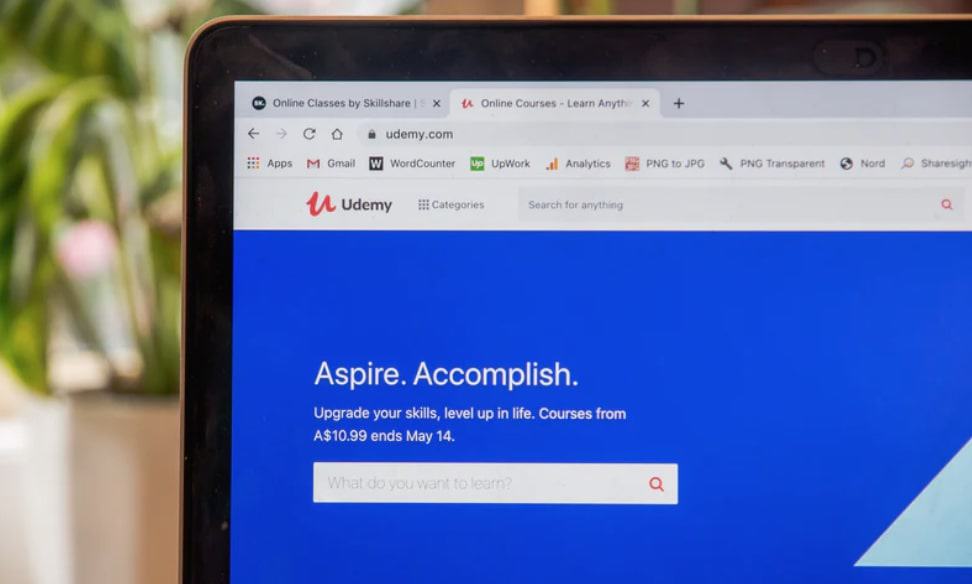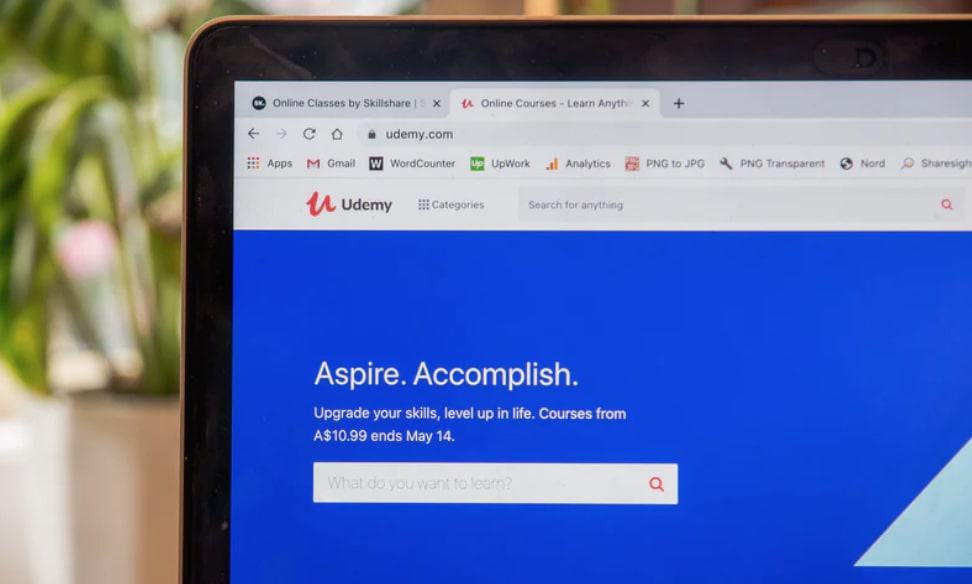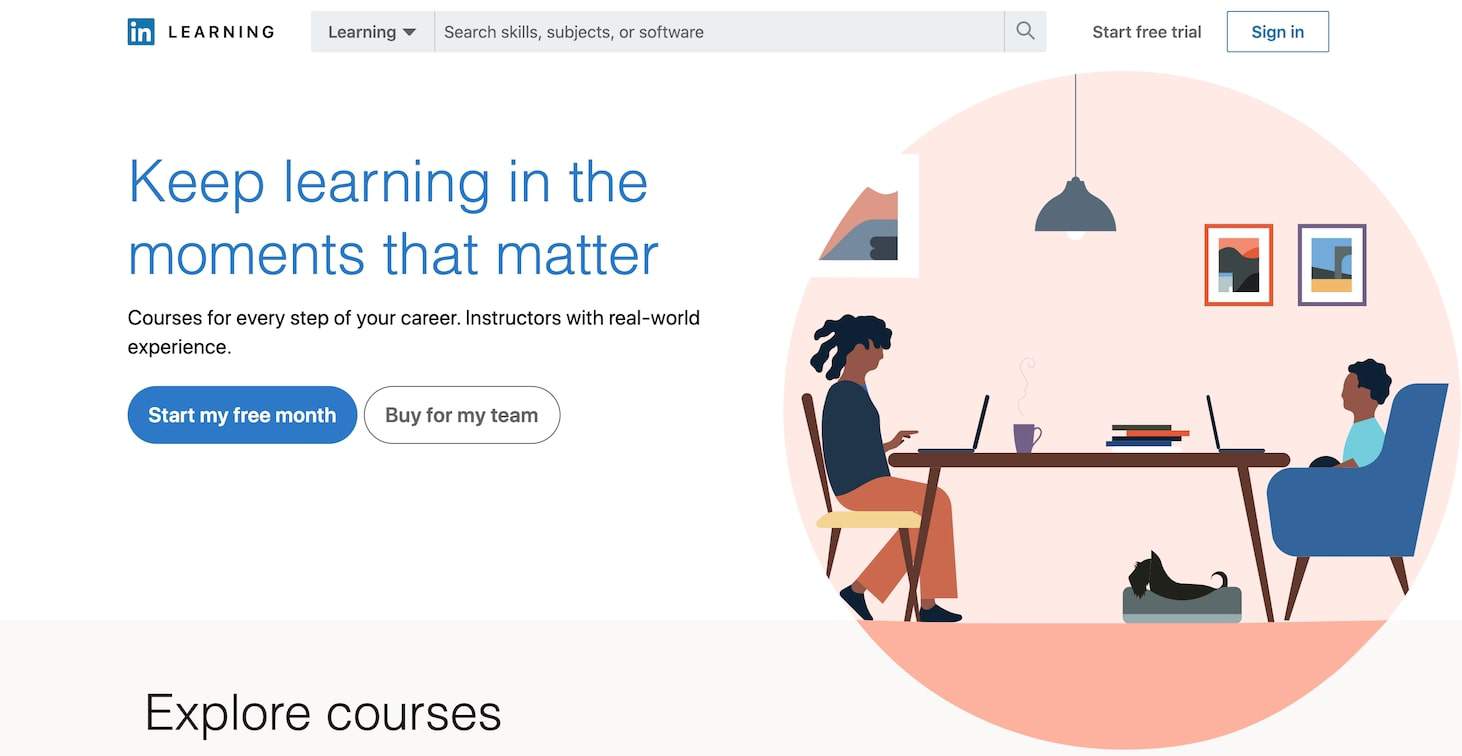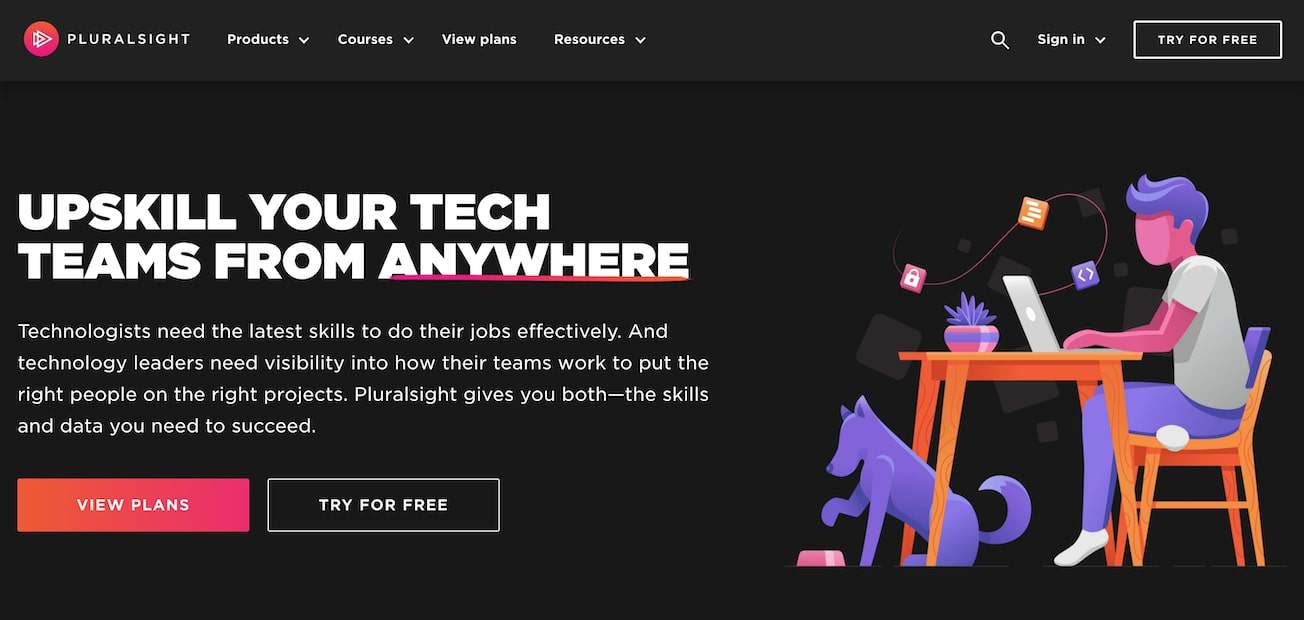How To Find An Employer That Values Learning | 59+ Companies Using ELearning Providers


While many relate eLearning to job seekers and personal development, there are now thousands of corporations and companies using eLearing for upskilling their workforce effectivly, afforadbly, and remotly.
Also in the wake of a global pandemic, more companies are seeing the benefits of eLearning and how it can help their business stay agile in these uncertain times.
Below, you will find some of the largest eLearning platforms that are deliverying these courses, along with some top companies and how they are currently using eLearning. Let’s get started!
59+ Companies Using eLearning + Providers 2024

1. Udemy
Founded in 2010, Udemy has seen massive growth as an eLearning platform and as of August 2020, boasts over 150,000 courses on its platform that have generated 295 million enrollments. Considering the numbers, it is no surprise that you will find a course on almost every subject that you can imagine.
On Udemy, instructors are able to develop full courses that include videos, pdfs, zip files, exercises, and online discussion boards. These courses are then sold as products to students, who receive full lifetime access upon making a purchase.
The platform offers access to a curated suite of 4000+ high quality courses for over 5000 corporate customers, with extra features like actionable insights and admin functionality. Here is a list of companies using eLearning through Udemy:
- AKKA
- Adidas
- Booking.com
- Ellation
- General Mills
- IDC
- ITX
- Kaiser Permanente
- Lyft
- Malwarebytes
- Sapient
- Survey Monkey
- TBC Corporation
- Tetrasoft
- TrustArc
- Valin Corporation
- Vendini
- Volkswagen
- WORLDPAC
2. LinkedIn Learning

LinkedIn Learning started off in 1995 as Lynda.com, a low-functionality online course-provider which was acquired in 2015 by LinkedIn for a deal worth $1.5 billion. As of March 2020, more than 17 million users have taken its business, creative, and technology-related courses.
Students who acquire the LinkedIn premium license via a monthly subscription can access all of its courses that include video lectures, exercises, projects, and community learning groups.
LinkedIn Learning also provides Business Solutions to its corporate clients that include 78 of the Fortune 100 companies. You can easily reach out to a learning solutions consultant to get a customized eLearning solution developed that suits your organization. Here is the list of companies using eLearning via LinkedIn Learning:
- Arcadia University
- Bank of America
- Autodesk
- Alliance Data
- C. H. Robinson
- Cramer-Krasselt
- Deltek
- Durham University
- EY
- Ferguson
- Hilltop Securities
- Kellogg’s
- Penton
- Salesforce
- Fit
- Sportsbet.com.au
- Time Warner Cable
- Web Fleet Solutions
- Virginia Tech
- Zillow Group
3. Pluralsight

Pluralsight, founded in 2004, is another online eLearning giant that currently has over 1,500 subject matter experts that have developed more than 6,500 courses for Pluralsight’s platform.
A monthly subscription allows students to access these courses that include videos, quizzes, and interviews from industry experts. The courses are focused towards technology, software, and creative professionals.
Pluralsight has established itself as a leading player in the corporate training industry, offering customized solutions to 70% of Fortune 500 companies. As of August 2020, it has more than 17,700 business accounts on its platforms. Here is the list of companies that prefer to use Pluralsight:
- Acxiom
- Andela
- AppDirect
- ATOS
- CDK Global
- CloudHealth
- DealerSocket
- Dimension Data
- Frontier Software
- Fujitsu
- HelloFresh
- Homie
- Johnson Controls
- Marsh & McLennan Companies
- NASDAQ
- Nomura
- Teach For America
- Telefonica
- UST Global
- VMWare
How Companies Are Currently Using eLearning

Now that you’ve explored three of the top eLearning platforms on the internet, let us now dive into how some of the top companies make use of eLearning in their L&D programs!
1. Adidas Group
With more than 51,000 employees around the globe, Germany-based giant Adidas had to think carefully about how it trained its workforce, and thus introduced a unique L&D solution – the Group Learning Campus.
This new initiative consists of video lectures, e-books, pdfs, and a wide range of social and interactive learning materials which all employees can access any time they want. Employees receive ‘recommendations’ and have the option to rate and review content on the platform.
As a result of this, employee engagement and skills have gone up, bringing improved performance for the management and company.
2. Shell
Shell is an oil and gas giant that has 92,000 employees spread across 70 countries, and has developed its online eLearning platform called the Shell Open University. Every employee has full access to the learning materials on the platform that include video lectures, e-books, webcasts, and technical guides.
Employees can learn about the technical as well as commercial subjects, evaluating their capabilities as they complete the programs. Shell also reimburses any extra time or money spent in L&D which is not catered to sufficiently by their own corporate curriculum.
This has helped Shell improve the performance of its employees from all around the world.
3. Toyota
Toyota is yet another major company that has 51 manufacturing facilities in 28 countries that employ a total of 340,000 employees. To facilitate the L&D of these employees, it has developed its own Learning Management System (LMS) which upgraded to its latest version in 2013.
Through this platform, it has trained up to 18,000 engineers and motor technicians by providing over 150 classes for its certified technical staff. With the latest version of its LMS, it has removed the need for re-certification by implementing continuous training. It also has a library of non-technical learning materials for its retail outlets and distributors.
4. PayPal
PayPal is a leading American company in the global online payments sector, and one that has fully embraced eLearning for its employees in many ways. Adopting an unconventional approach, PayPal uses social media like Twitter and Facebook to train its employees by inviting experts to give short lessons in private groups.
Other than that, it has also utilized Udemy for Business, making 4,000+ courses accessible to its employees for self-paced learning. As a result of this, it has been able to reduce its L&D expenses by 25%, and now has employees who complete a minimum of 2 courses every 6 months.
5. Pitney Bowes
A mailing services and equipment supplier, Pitney Bowes falls just short of being in the Fortune 500 and yet employs more than 14,000 people worldwide. To train its workforce (especially its distributed engineering team), it has made use of Udemy for Business.
Every employee has full lifetime access to the top Udemy courses which include not only those related to their technical roles, but also courses related to personal and professional development. They can easily take quizzes after completing the courses to test their newly acquired skills.
Evidently, the bug of eLearning has spread like wildfire in Pitney Bowes, with 84% of the employees now resorting to eLearning to upgrade their skills.
6. Booking.com
Booking.com has been providing online accommodations reservation services since 1996. Being a tech company, it very quickly realized the importance of eLearning and implemented a custom-made solution for its employees which included online classes and tutoring.
As a result, amateurs and beginners who join its workforce are able to quickly improve their technical skills and grow professionally. This has reduced the number of people who end up leaving the company after a few years because they remain engaged and continue to learn new skills with every passing year.
7. Verint
Verint is a software and hardware solutions company which works in the customer engagement and information security industry. The company found itself struggling to train its EMEA-based sales workers and had to accept low KPIs for a number of years.
Luckily, they were able to leverage the powers of ‘gamification’ in eLearning, creating quizzes and blended learning sessions in a way that made the employees feel like they were playing a game and sparked engagement and teamwork.
Not only did this allow its sales employees to understand the product much better, the company’s KPIs experienced a growth of 300% in just several months of time.
8. Lyft
Lyft is a growing transportations company which was launched in 2012 and conducts its business via a ride-hailing app. It is among the list of companies using eLearning that tried different approaches towards L&D (which failed) before zeroing in on eLearning solutions.
Now, it has delegated training decisions to its managers, who use their preferred platform of choice to train their teams. Employees are expected to take up courses depending on whether they have to upgrade their current skills or acquire new ones.
Newly inducted employees are kept on an onboarding platform so that their L&D can be managed appropriately. In the future, Lyft aims to upload all of its ‘all-hands’ meetings and corporate events online to make them available throughout the day.
9. Crouse Hospital
One of central New York’s largest employers, Crouse Hospital has over 2,700 workers which serve 250,000 patients every year. Tired of its time and effort-intensive paper-based L&D program, it implemented eLearning in 2015 in a bid to save time and costs and improve learning.
Its students can now study healthcare-related material online whenever they want from the comfort of their homes, and administrators can conveniently track their progress, create and manage classes, and generate reports.
This proved to be a success, with a lot of the saved time allowing employees to focus on other, more important responsibilities.
10. Colorado State University – Global Campus
Although the platform itself is an eLearning solution, Colorado State University’s Global Campus implemented the same change inside its own administration teams, ‘gamifying’ its daily tasks and responsibilities.
Employees would now be completing the same tasks as before but now they would do so as if playing a game and completing quests. This proved to be a highly engaging and attractive method, and resulted in improved job effectiveness, employee satisfaction, and engagement.
A useful outcome of this has also been that employees are inadvertently improving their specific skillsets through increased engagement. To learn more, you can also see my guide on the benefits and disadvantages of eLearning.
